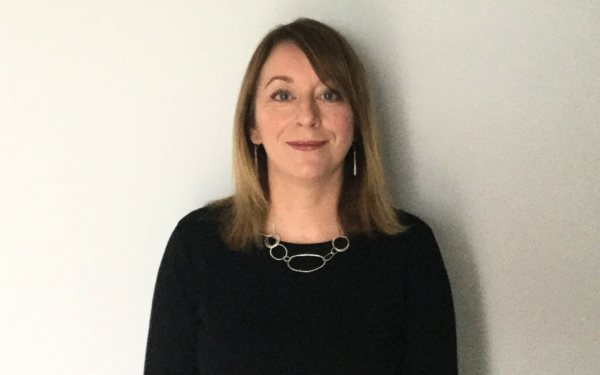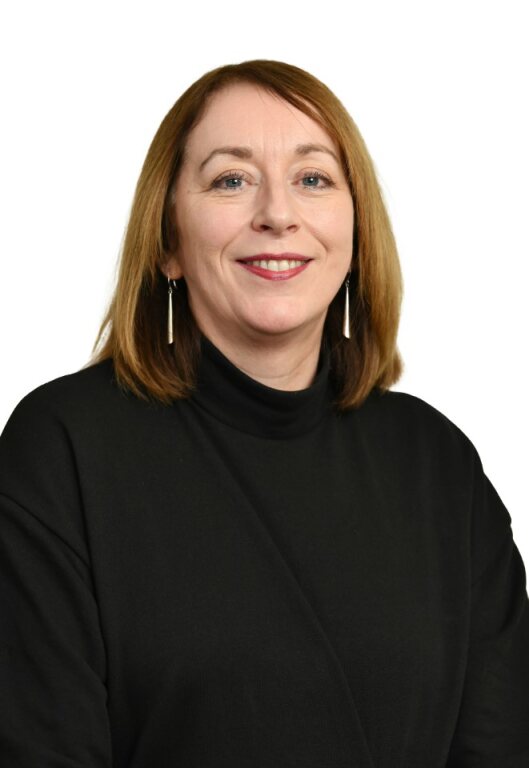
By Upasana Rajagopalan
Denise Monks’s passion for social justice is evident not only in her work now as a professional officer at the British Association of Social Workers, but also her beginnings in the sector.
While working at Stockport Council in 2002, just a few years after qualifying, she noticed a gap in support for parents with learning disabilities. So she created a specialist team to bridge it.
She developed resources for children’s social workers to communicate effectively with these parents and inspired a culture change that lasted even after the team was dissolved.
The team’s work was referenced in 2007 government good practice guidelines on working with parents with learning disabilities (since updated by the Working Together with Parents Network).
Speaking to Community Care, Denise talked about the lack of specialist support in place for parents with learning disabilities and what needs to be done to ensure lasting change.
What sparked your interest in the learning disability sector?
My first role post-qualification was as a social worker in a multidisciplinary learning disability team. I loved that job because it helped me have a positive influence on people’s day-to-day lives.
Three out of my five years there were working specifically with parents with learning disabilities.
I was working with two parents with learning disabilities who had two children removed from their care, with a new baby on the way, which was also later removed.
They had been known to children’s services for several years but before I was allocated to the case, they had never received support as adults in their own right.
The inequality inherent in the way they were treated was quite evident.”
These parents had not been afforded the support to develop the parenting skills they needed to care for their children. They were being assessed with the methods used for families where parents did not have a learning disability.
They were at a disadvantage, and that sparked a bit of a fight in me as that was not fair.
What led you to create a team specialising in helping parents with learning disabilities?
Myself and a colleague [a learning disability nurse] worked with the family for two years, and in the process realised that numerous other families were in similar situations.
That led us to want to specialise in working with parents with learning disabilities.
We were seeing a lack of understanding in terms of communication with adults with learning disabilities.
A lot of these individuals managed their daily lives fine while they just had themselves to care for.
But once the baby was introduced into the situation, it added a level of complexity. They did not have the skills and the support networks in place to adapt quickly enough to meet the child’s needs.
Moreover, assessments were undertaken in the same way that they would be for somebody who didn’t have a learning disability, which meant that there were no reasonable adjustments made for the parents.
So we presented this to our managers and set up a team. We started working with parents with learning disabilities, including those who were at risk of losing their children, as well as midwives.
What initiatives were taken by the team to support parents?

Pictured: Denise Monks
In most cases, it was about addressing simple things, such as social workers feeling the families were not engaging because they were never at home when the social worker was due to call.
This was a time before people had smartphones. So in many instances, letters were sent to families to say they had an appointment with their social worker next week at a specific time.
What we discovered was they often couldn’t tell the time or could not keep track of time and many of them couldn’t read the letters that were being sent. So it wasn’t that they were not engaging with the social workers, but more a case of communication gaps.
We started to support the social workers in terms of different strategies they could use. We suggested ringing up the parents to tell them when [the social workers] would arrive or refer to the start or end of a TV programme to indicate a time.
We also developed specific resources to help the families with pre-birth work. Before, they were issued with generic material, with no real consideration of the difficulties they faced with things as simple as making the bottles for the child or how to keep them clean.
We worked jointly with the parents and the midwives to develop little books with visual aids about what was expected of them when caring for their child.
Back then, 20 years ago, we also developed a parenting programme. As part of the model, we started to directly deliver parenting classes specifically for parents with learning disabilities.
So it was piece by piece, trying to get to the stage we needed to be.
What were some of the challenges the team faced?
Even though we helped many children stay with their parents, there were times when this was not possible.
Even with all the support, sometimes the parents could not care for their children and it was not appropriate for the child to stay.
That was very difficult for us, as it was because of our evidence that the child wasn’t with the family.”
In most cases, we continued to work with those parents.
We felt humbled and blessed because they allowed us to continue supporting them through the court case, and to help them keep in touch with their children and cope with grief and bereavement.
How did the initiatives taken by the team affect practice in children and families teams?
Over time, the children’s social workers started to see where we were coming from. A culture change was initiated as they became really supportive in terms of what we did.
Even when the service started to wind down, the children and families’ teams continued to use some of the tools we had implemented.
These included working with the charity Change to develop a parenting guide for children aged up to one year. The guide was an easy-to-read version of the information that health visitors gave out to all new parents.
We purchased the software for the parent assessment manual (PAMS) assessments and developed additional pictorial resources, such as booklets containing pictures of the local maternity suite and ultrasound scans to prepare expectant mothers.
We also worked in partnership with our local school nurses, who allowed us to periodically borrow their virtual babies. The exercise was similar to today’s baby infant simulators, which use a mechanical baby doll to develop skills around parenting and early childhood.
It was a positive development to see the teams continue to use these tools.
What led to the end of the support team for parents with learning disabilities?
While working in the team 20 years back, we worked with one of the government departments to research the cost of providing long-term support to a child and supporting the parents at specific times of the child’s life.
Evidence suggested that lifetime support, where appropriate, was more financially viable for the state than going through the process of having the child removed, placed in foster care and then put through the adoption process.
Unfortunately, there was no target set by the government and as the country entered into the years of austerity and budget cuts, the ability to continue the personalised support for parents with learning disabilities started to ebb.
My colleague left to become a health visitor and I was the only person on the team with that specialism.
And bit by bit, other kinds of work came my way. I was given a lot of safeguarding [work] that was not around parents, and the service started to wind down.
Twenty years on, what are your thoughts on the support available to parents with learning disabilities? Is enough being done?
There is a lot of research undertaken in universities like Bristol and Bath regarding this. However, things have not changed over the past 20 years.
Our team’s work was referenced in the [government’s] good practice guidelines and many social workers and psychologists often get in touch to find out more about what we did. But this remains at an individual level in a local area. And once those people who are passionate leave, the service starts to wind down.
This happens firstly because there is no dedicated government funding for it, and no targets or initiatives to push for.
Secondly, with limited budgets for learning disability teams, the work is pushed onto the children and families teams, who may not have the expertise to support parents with learning disabilities.
The other reason is that parents themselves may not have had a formal assessment and diagnosis of learning disabilities, which can make it difficult for them to access services.
Unfortunately, I would say things have gone backwards because local areas don’t have the same funding and ability to be creative as before.”
Even when there are passionate and talented people who want to make a change, they are not afforded the same freedom and opportunities that my colleague and I had back in the day.
What changes would you like to see in social work in the coming years?
Our communities need long-term reinvestments. Local authorities and community groups are funded on a 12-monthly basis, and sometimes that funding might not be beyond that period.
That is not good enough if we need to build stable communities.
I think how central government funding is fed into our local communities must change so that we have longevity and can truly grow those initiatives. Otherwise, the fatigue of always being in the start-up phase depletes trust in the system and initiatives have no lasting impact.
Any last few words reflecting on your journey in social work?
Given this is Community Care’s anniversary, and I have also turned 50, I do look at that era and feel blessed about being a social worker because I had the freedom and opportunity to initiate change.
I feel that we have such a wealth of talent and tenacity in terms of the social workers that are coming through now and the social workers that are still out there.
That is something to be proud of and that inspires hope for the future.



 Family help: one local authority’s experience of the model
Family help: one local authority’s experience of the model  ‘I spent the first three months listening’: how supportive leadership can transform children’s services
‘I spent the first three months listening’: how supportive leadership can transform children’s services  How senior leaders in one authority maintain a culture of excellence
How senior leaders in one authority maintain a culture of excellence  How staff support ensures fantastic outcomes for children and families
How staff support ensures fantastic outcomes for children and families  Workforce Insights – showcasing a selection of the sector’s top recruiters
Workforce Insights – showcasing a selection of the sector’s top recruiters 

 Facebook
Facebook X
X LinkedIn
LinkedIn Instagram
Instagram
I have just completed a large study (on parents with a learning disability) with many professionals across adult and children’s social care, health and law and with parents and groups supporting them. As a result I could not agree with you more. But a shift in practice will require commitment from DfE and DHSC – and probably Min of Justice – to work with social care / social work profession, legal profession and parents, advocates etc to revise guidance on parents with a learning disability so it is focused and aligned with contemporary practice. Awareness of current guidance is very low amongst social workers in adult and children’s services, even though it has been referenced in a number of court cases and promoted by former and current Presidents of the Family Division. However, it was never promoted by the government departments who first published it in 2007. Despite being updated twice since then it still has logos on its cover of DfES (disappeared 2007) and DoH (became DHSC in 2018). So for this and for many other reasons, it is not surprising that Denise Marks concludes that ‘things have gone backwards for parents with learning disabilities’.
Fantastic article shining a light on a neglected area of practice and the real harms caused to parents with learning disabilities and their children